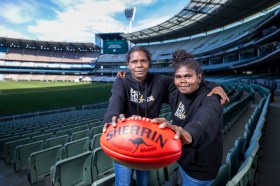The Sheffield DocFest is one of the major English-language tribal gatherings for the documentary sector. It is hastily gluing itself back together after an astonishingly public decision to sack its entire programming team.
The Trustees are left to pick up the pieces, while the programmers are free to create their own narrative, which paints the organisation as unbelievably stupid. They are instinctive storytellers, and the story is beautifully constructed, based on a single letter of public protest, signed by all the ousted programmers.
What happened?
Here is the promo reel for the 2018 DocFest in 2018, shaped by Festival Director of Programming Luke Moody.
A year later, just after the 2019 festival, he resigned. He is known to Australians because he was a creator of BritDoc, which has been a force for good with the Documentary Australia Foundation. He told BFI writer Nick Bradshaw,
“This festival needs to find a new vision and I’ve tried to bring that – for the programme to be international, and representative of a broader spectrum of what documentary and nonfiction can be,” he wrote to me. “But their anchor is the festival as it was 10, 20 years ago – putting forward colonial forms of filmmaking, annually offering and pressuring to include content only relevant to a domestic market and directed by white men over 40. The chimney needs sweeping before a fire can be lit.”
We can guess that he found the Board of Trustees hard work. The Board defended its direction with the results of Moody’s own festival..
“In line with Doc/Fest’s ambition to nurture new voices both internationally and from the UK, many were from emerging filmmakers with a particular emphasis on Latin America and East Asia. The film programme exceeded gender parity, with 54% of films, and 57% of competition-nominated films, having been directed/co-directed by women,” said a Doc/Fest spokesperson.
Indeed, DocFest went on to recruit Portuguese Cíntia Gil with good connections to documentary festivals across Asia and Europe to run the festival. She brought in a programming team from very diverse backgrounds. The names suggest the range – Juliano Gomes, Qila Gill, Carlos Pereira, Christopher Small, Rabz Lansiquot, Soukaina Aboulaoula and Herb Shellenberger.
Read: Sydney Film Festival announces 12 Documentary Australia Foundation finalists
On Twitter, DocFest said ‘..we want to take a clear stand for some of the main principles that we have and will keep defending in our work and our programme, and acknowledge our shortcomings as an institution..’ It increased and highlighted its support for Black filmmakers.
The promo for the 2021 promo looked like this:
Three months after this event, on 19 August 2021, the sector was told this:
International Documentary Festival Sheffield announces that after directing two successful festivals, Cíntia Gil has left her position as Festival Director as a result of artistic differences over the present and future direction of the Festival with the Board of Trustees…
The Trustees are extremely grateful for Cíntia’s significant contribution to the Festival over these past tough two years and wish her all the best for the future.
The explosion
This is where the story really goes pear-shaped. The programmers went public next day in a letter signed by all of them.
Within a couple of days of the press articles being published, we had been silently locked out of our email accounts and all traces of our presence at the festival—names, photos, information about our work— were scrubbed from the website.
We received no note of termination, no thanks for our work, no acknowledgement that we had played any role in the 2020 and 2021 editions of the festival, both of which took place in a pandemic. We wrote to the board and, after receiving tepid thanks, we were told that we could reapply for our jobs when the positions were advertised again.
This is a public relations disaster for Sheffield. It has enormous connections around the world, with an active international support system, while moralistic stories are the bread and butter of the sector. We are alert to skullduggery against our diversity crusade.
Even worse, the letter claims the decision was not just about professional issues – it suggests the programmers were treated so badly that there is something wrong with the Trustees. ‘How could they?’ we ask as our moral hackles rise. We forget that Sheffield Doc/Fest is an industry conference and a market, which remains intact, staffed by trusted people.
There is a lot of discussion going on behind closed doors in the documentary conference world. I am given no more information, but I hear the inside anger about a cartoonish, one-sided story.
Some questions
The contracts for the programming staff (according to the organisation) actually finished last June. Were they ‘sacked’ at all? Maybe all evidence that they existed was hunted out of the organisation, but ex-staff do lose their email addresses and their photos are removed.
The dates are a jumble. We only know when the announcements were made. On August 25, DocFest announced five new Trustees, two of non-Anglo background, four women. Apart from Chair Alex Cooke, from production company Renegade, the new members seem to be closely aligned with major broadcasters.
We don’t know anything about the internal tensions. Change may have come very hard.
What was wrong with the festival?
The programmers’ letter points out that the 2021 Festival report was positive. It remains on the website. It does not talk finances, which are probably a shambles because of Covid. 3,800 people went to Sheffield while 41,500 engaged remotely. They came from 70 countries, included 2,000 industry delegates with 358 ‘industry representatives and buyers.’
So, it is not like ‘they held a festival and nobody came.’ Those figures are impressive although they don’t speak to how long people were engaged and how deeply, and their private responses.
The programmers are clearly seeing the festival as a tool of opposition and political change.
We are suspicious of institutions paying lip service to ‘diversity’ whilst simultaneously resisting the essential work that must be done to address systemic issues of exclusion and injustice in the industry. Film festivals like Sheffield DocFest should be a tool to deconstruct pathways of power that prioritise one film, one national cinema, one distribution model, one filmmaking movement over another.
I don’t much like the wowserish call to arms in that statement, and I don’t believe that the existing sector is monolithic – indeed, the tenacity of our exclusionary system depends on its ability to adapt. Broadcasters are broad churches.
What is a film festival even for?
That rhetorical question was asked by the banished programmers, who said
‘At its best, festival programming challenges audiences, and the industry, to think critically and to remain open to absorbing perspectives and styles that may be new and unfamiliar.’
The Trustees quote the official mantra.
Sheffield DocFest’s purpose is to advance the art of film, education and training in documentary filmmaking, to showcase an outstanding selection of national and international non-fiction storytelling, and to celebrate documentary in all its many and evolving forms…
Here we have an ironically high art rhetoric of confrontation and showing people how to think, up against education, valorisation and pleasure. What do we have here? Uncontrolled doctrinaire wowsers? Reactionary mongrels putting progressives to the sword? Once the protagonists got angry, there may be elements of all this.
The underlying tensions
The Australian International Documentary Conference, helped along by our notorious/reassuring pragmatism, is a neat illustration of the two dominant continuing issues in running these events. There is always tension between the truly independent sector and the commissioning/exhibition side with its own outburst of righteousness and careerism.
But there is general sympathy across the independent vs institutional divide. They need each other and can become each other. The marketplace serves everyone. Indeed, we could have a useful conversation about jealousy but only in a padded room.
Conferences strive for balance but not purity. Keeping all the competing forces happy is complex and head honchos learn patience, deal making and the occasional taste of humble pie.
The other issue is more private and more generic. There is no such thing as a big screen event built around personal taste and individual vision. The organisers harvest collective ideas, and pull together complex organisations driven by fast decisions and adrenalin. They run on sponsorship, and donors need bang for their buck; managing that is a feature, not a bug. Conferences strive for balance but not purity. Keeping all the competing forces happy is complex and head honchos learn patience, deal making and the occasional taste of humble pie.
You can’t buck that system – you can only be honest about it. Fundamentalism and self-righteousness just don’t play on either side.
To be continued
There is a lot more to Sheffield DocFest than the screening program. The whole event is hugely valued even though the place itself is a brutal reminder of post-industrial England. As guests tell each other, there is nothing to distract you from documentary.
The Trustees have issued an apology, which includes that statement about the contracts. It concludes with this:
We remain enthusiastic about the future of the festival and are currently working on our strategy with a view to the new leadership playing a role, with the Board, in determining how Sheffield DocFest develops.
We apologise to the signatories for not communicating better. We very much appreciate their contribution to the festival. Their fixed-term contracts ended in June 2021, after this year’s Festival but we welcome their candidacy for future programming roles.
The Board of Trustees (Alex Cooke, (Chair), Brian Woods (Deputy Chair) , Jo Clinton-Davis, Madonna Benjamin, Helen Scott, Derren Lawford, Peter Armstrong, Shirani Sabaratnam).
Here is the last statement from the programmers’ letter. They are certainly joined at the hip.
We are eternally grateful for the opportunity to be part of an artistic team led by Cíntia. We’ve learned from each other and thank her for creating a brave space to listen and learn. Each of our regular meetings to discuss the programme, coming at the start of the year when the pandemic was at its peak in many of our countries, was an oasis.
Disclosure: The festival promo clip I really liked was run in 2019. Less conventional than the previous year, certainly quieter and more abstract, but not the single idea of 2021. It is pretty lovely.





